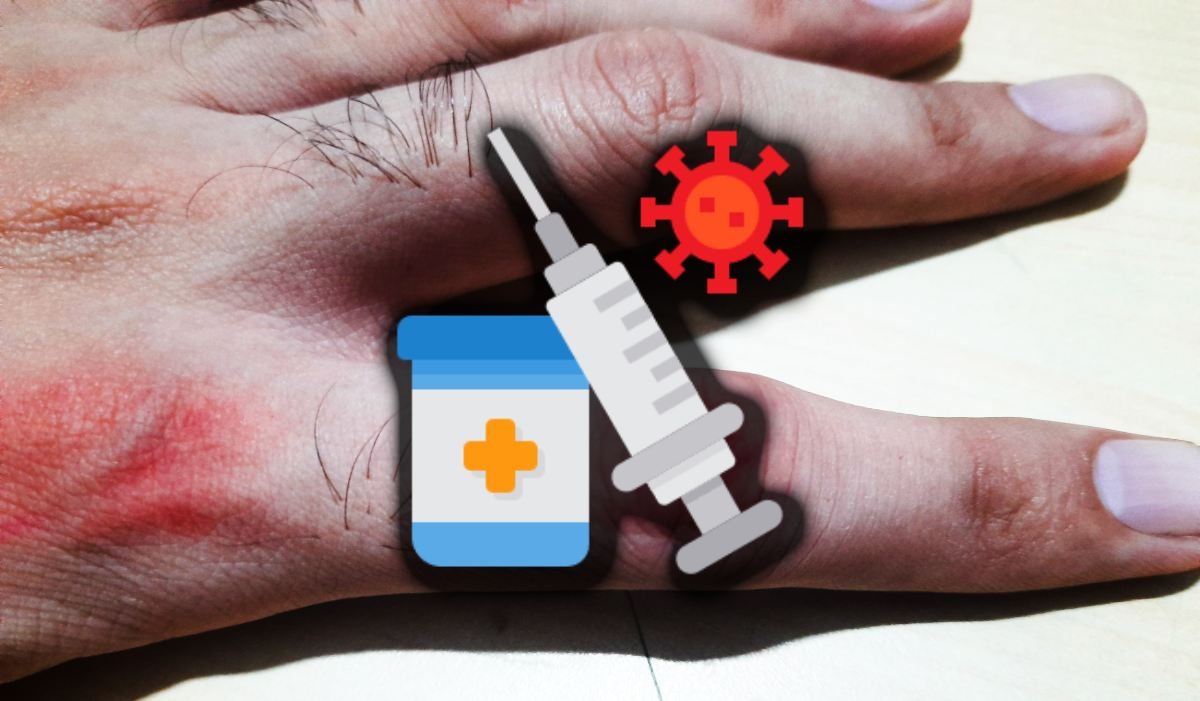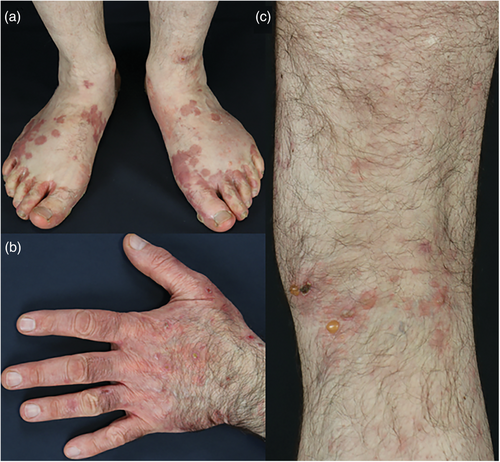Various Skin Disorders Linked to Covid Vaccination: Insights from a German Meta-Analysis

The emergence of the SARS-CoV-2 virus in 2019 marked a turning point in modern medicine and global health. In the quest to combat the virus, researchers worldwide embarked on an ambitious journey to develop vaccines, ultimately leading to the authorization of multiple Covid-19 vaccines.
Among these, the mRNA-based vaccines, such as Pfizer/BioNTech and Moderna, played a significant role, offering a new approach to vaccination.
As millions of people received their Covid-19 vaccinations, reports began to surface suggesting a potential link between these vaccines and the development or exacerbation of autoimmune skin disorders. This concern prompted researchers to conduct a meta-analysis to investigate the association between SARS-CoV-2 vaccination and skin disorders.
In a paper titled “Autoimmune Skin Disorders and SARS-CoV-2 Vaccination – A Meta-Analysis,” authored by Julia Hinterseher, Michael Hertl, and Dario Didona and published in the Journal of the German Society of Dermatology, an extensive examination of the data sheds light on this complex issue.
Skin Disorders Under Scrutiny
The meta-analysis focused on six dermatological conditions:
- bullous pemphigoid (BP)
- pemphigus vulgaris (PV)
- systemic lupus erythematosus (SLE)
- dermatomyositis (DM)
- lichen planus (LP), and
- leukocytoclastic vasculitis (LV).
The researchers sought to determine whether these conditions developed de novo or worsened after individuals received a Covid-19 vaccination.
Methodology
To conduct their research, the authors adhered to the PRISMA guidelines for systematic reviews and meta-analyses. They conducted a thorough search of MEDLINE until June 30th, 2022, using specific search terms related to Covid-19 vaccines and each of the six skin disorders. Two authors independently reviewed the literature, with a third reviewer resolving any discrepancies.
Findings
The meta-analysis revealed intriguing insights into the relationship between Covid-19 vaccination and autoimmune skin disorders:
1. Bullous Pemphigoid (BP)

The analysis revealed that out of 31 publications examined, 28 reported cases of new-onset or worsening BP following SARS-CoV-2 vaccination. Bullous pemphigoid is an autoimmune skin disorder characterized by the development of tense blisters and skin erosions.
This significant number of cases suggests a noteworthy association between Covid-19 vaccination and the development or exacerbation of BP. The onset of BP occurred relatively quickly, within eight to 11 days after vaccination in most cases.
2. Pemphigus Vulgaris (PV)
Among the 24 publications reviewed, 14 cases of new-onset or worsening PV were identified after Covid-19 vaccination. Pemphigus vulgaris is another autoimmune blistering disorder affecting the skin and mucous membranes.
While this number of cases is not as substantial as with BP, it still suggests a potential link between PV and Covid-19 vaccines. Further research is needed to understand the extent of this association and the underlying mechanisms.
3. Systemic Lupus Erythematosus (SLE)
The analysis of 65 publications found 11 cases of new-onset or worsening SLE after Covid-19 vaccination. Systemic lupus erythematosus is a systemic autoimmune disease that can affect various organs, including the skin.
The fact that these cases occurred after vaccination implies a potential influence of Covid-19 vaccines on SLE. The onset of SLE symptoms following vaccination ranged from four to 11 days, indicating a relatively rapid response.
4. Dermatomyositis (DM)

The research identified eight cases of new-onset DM and one case of worsened DM after Covid-19 vaccination. Dermatomyositis is a rare autoimmune condition primarily affecting the skin and muscles. The similarity in the immune response triggered by Covid-19 vaccines and DM suggests a possible connection.
It’s worth noting that for patients with a previous DM diagnosis, ongoing immunosuppressive therapy may have prevented a more pronounced autoimmune response.
5. Lichen Planus (LP)
Out of the 30 publications examined, 12 cases of new-onset LP and three cases of worsened LP were reported following Covid-19 vaccination.
Lichen planus is a chronic inflammatory skin condition characterized by itchy, flat-topped, purple or reddish bumps on the skin.
The significant number of new-onset cases indicates a potential relationship between LP and vaccination, while the worsening of pre-existing LP further complicates the picture.
6. Leukocytoclastic Vasculitis (LV)
Among the 37 publications reviewed, 27 cases of new-onset LV were identified, and one case had a previous history of LV. Leukocytoclastic vasculitis is an inflammatory condition affecting small blood vessels in the skin.
The high number of new-onset cases, coupled with the single case with a prior history, raises the possibility of a link between LV and Covid-19 vaccination.
The skin lesions associated with LV appeared relatively quickly, within one to ten days after vaccination.
Bottom Line
The meta-analysis presents suggestive evidence of an association between SARS-CoV-2 vaccination and the development or exacerbation of autoimmune skin disorders. However, it is essential to consider the rarity of these events in the context of the broader population receiving vaccinations.
Several hypotheses have been proposed to explain these associations. Genetic predisposition, immune cross-reactivity, and toll-like receptor activation are among the potential mechanisms behind vaccine-induced autoimmune reactions.
While these findings warrant further investigation, it is crucial to emphasize that the observed cases of new-onset or worsening skin disorders following vaccination are relatively rare and may align with the background incidence of these conditions.
In conclusion, the German meta-analysis underscores the importance of monitoring and researching potential adverse events related to Covid-19 vaccines.
Vaccinations have been pivotal in saving countless lives worldwide, and the observed cases of autoimmune skin disorders are, for the most part, rare and manageable.
The meta-analysis neither confirms nor denies a direct causal link between vaccination and skin disorders but highlights the need for ongoing vigilance and research.
Related
